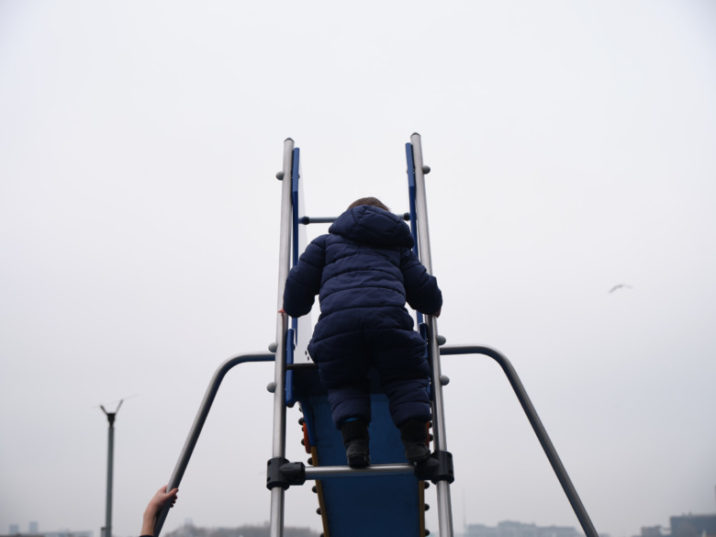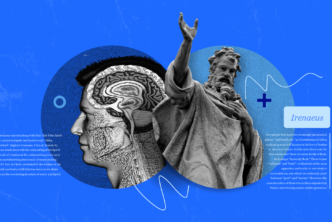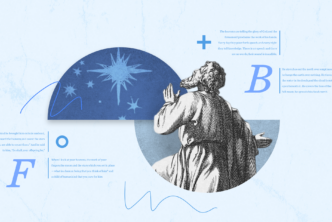The New Year began for those of us in the UK with a new lockdown fresh out of the gates. We are like toddlers struggling up the steps to the top of a slide only to arrive at a higher, scarier ascent. Where did the slide go?
On Monday morning, friends of mine returned to work (both online and in the office), only to be told that same evening that they could not leave their homes, nor could their children go to school the next day (after 2 weeks of Christmas break). For us scholars and pastors, finding time to study is never easy, but the pandemic makes it nearly impossible.
2021 begins on a low.
There is, however, a high note at this year’s beginning, at least for me personally. January 1 marks the fourth anniversary of the re-launch of the Logos Academic Blog. I stepped into this role in the middle of my PhD studies at Durham University. At first my supervisor, John Barclay, cautioned me about the demands this would place on my time. There was a concern that the manifold responsibilities of managing the blog, and young family, would take away from the writing of my doctoral thesis. John was right; the PhD took a few years longer than planned.
But the outcome of those years was worth the wait. Despite the 14-hour days balancing research and academic writing on the one hand, and editing and publishing and photographing and ad-copy writing on the other hand, I learned to persist, to meet self-imposed deadlines, and, perhaps most importantly (if not imperfectly), to value my family above any scholarly or professional ambitions.
I relate this story to you, as a faithful reader of the Academic Blog, to give you hope in these bleak times. You may be stuck at home with a full house, children screaming for toys and food and your spouse vying for his or her own work and study hours. You might be single and more lonely than ever before in your life, wondering what is the point of doing research if nobody is around to share your thoughts and life. Or you might be nearing your retirement wondering how a year of eagerly anticipated research time was snatched away by anxiety and fear.
Take heart. You are not alone. The recent series we’ve been publishing, Lockdown Diaries, is showing us all that even the most prolific, respected scholars in the world have struggled in 2020. And there is every reason to believe that the challenges thrown our way last year will persist, and probably increase, for at least the first half of 2021.
So what are we to do?
Even without knowing your personal situation, I believe you will benefit from following four specific practices which I pursued during the busy years of my doctorate. These four disciplines helped me to stay focused, stay sane, stay fit, and stay connected (to God). I hope these help you as well:
Read
Reading will keep your intellect thriving. Zoom, Facetime and other virtual hangouts are exhausting for many of us, but reading enables you to sit and listen to any thinker you choose, for as long as you wish.
Don’t just go to the academic or devotional works; lose yourself in Les Miserables, read The Republic, gobble up Bob Woodward’s account of the Watergate scandal. Do everything you can to get offline and into a real book.
And don’t forget to read the great content we published every week on the Logos Academic Blog!
Write
If reading is listening, writing is speaking. You listen to another person think when you read, but you are the voice when you write. Writing is thinking down your thoughts into a structured and rehearsable form.
Sit down and write once a day, but not on your computer. Retrain your fingers to hold a pen or pencil and relish slowing down a bit to give yourself space to think deeper, clearer thoughts. Invest in a nice journal and pen that are reserved only for this use.
Don’t worry about whether what you are writing is publishable material. That’s not the point here, and you’ll ruin your thinking if it’s corrupted by speculations about “will people like this.”
Who cares? Write to think, write for pleasure, write to escape the black hole of Facebook and Instagram. Write to live.
Run
Not literally, for everybody. I hate running. But you should be feeding your body’s exercise needs during these weird times. Don’t just read and write, and drink coffee all day (guilty…).
I’ve read and heard many testimonials from famous authors of the past who claimed that their most productive “writing” time was during walks in the woods, hard labor chopping wood, even swimming once a day.
You’ll be a better reader, writer, and thinker if you do activities that pump your brain and body full of healthy hormones. Get outside, then pick up and read (or write) again.
Pray
Perhaps prayer should be first on the list. But there’s no hierarchy in these four items, and of course some things are missing (sleep, for one). Devote yourself to prayer, says the apostle, and pray without ceasing.
Of course, you have other things to do apart from prayer. But you can actively, consciously pray through each of the three practices I’ve just mentioned, especially the first two:
Reading activates critical thinking and prolonged pontification; let those thoughts lead you into prayer about your own life, the state of humanity without God, even help with understanding the argument of the scholar you are reading that very moment.
Writing can be prayer. My personal experience in prayer over the years has led me to value writing out my thoughts to God more often than speaking them out loud or in my head.
But I’m not just talking about prayer lists. Writing my prayers as I pray them helps me to avoid distracting thoughts and leaves a legacy of interaction with God for me and others to read later.
Really, there is nothing new about the four practices above that I would not have suggested to any scholar or pastor prior to 2020. But I stress these four now because, at least for me and the other scholars I’ve been talking to recently, doing the normal things that we scholars do has been very hard, even impossible, in light of the present circumstances.
But that doesn’t mean we should wave the white flag and join the Netflix binge crowd. Resist that temptation. Think of your life on the other side of the pandemic. How will you retroactively judge the decisions you made during lockdown?
Your scholarly capacity may end up being much less than it was pre-COVID. That will be the case for most of us.
And yet, if nothing else, the pandemic can teach us that even small accomplishments have their significance in the bigger picture.
The Editor





